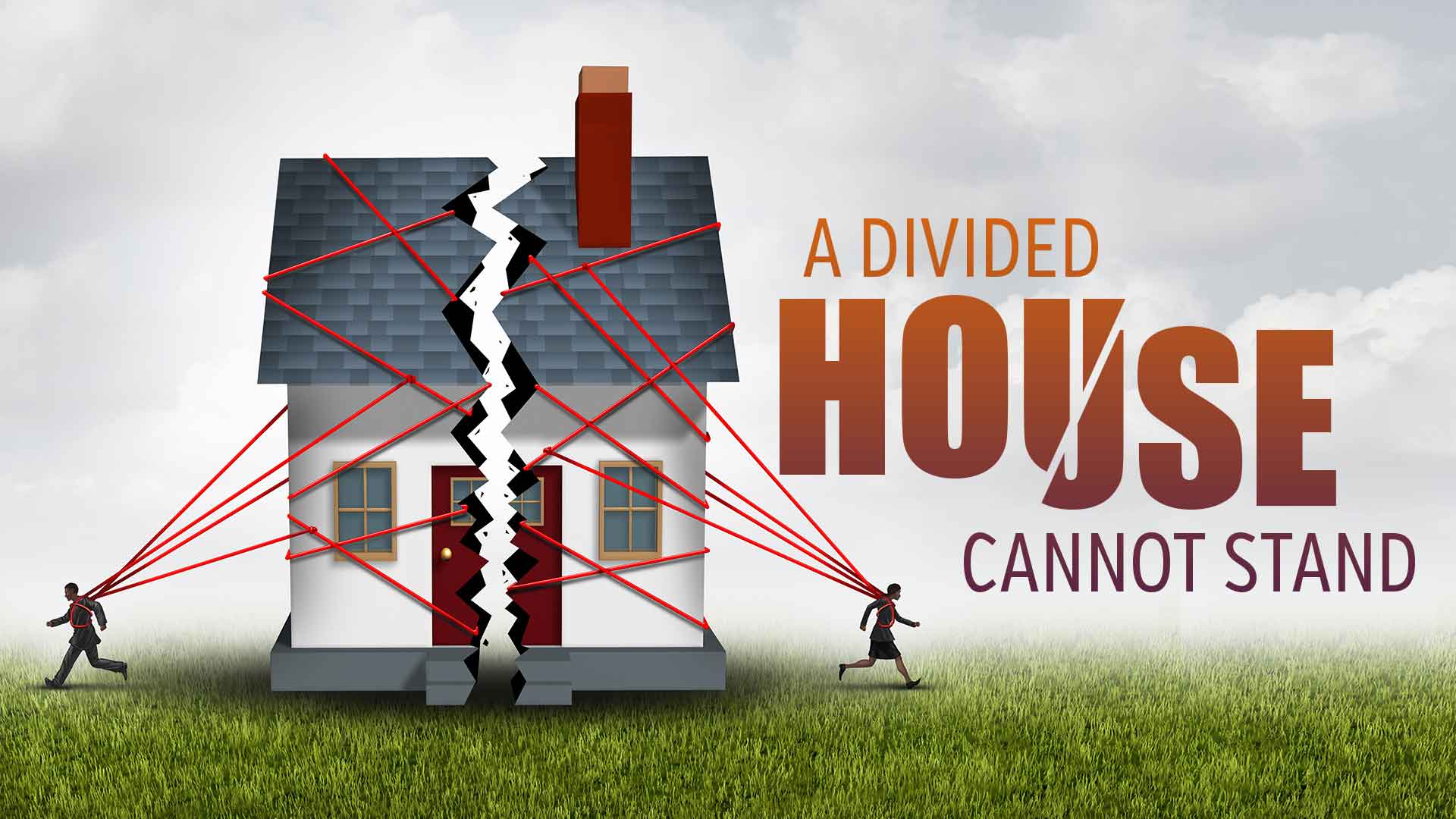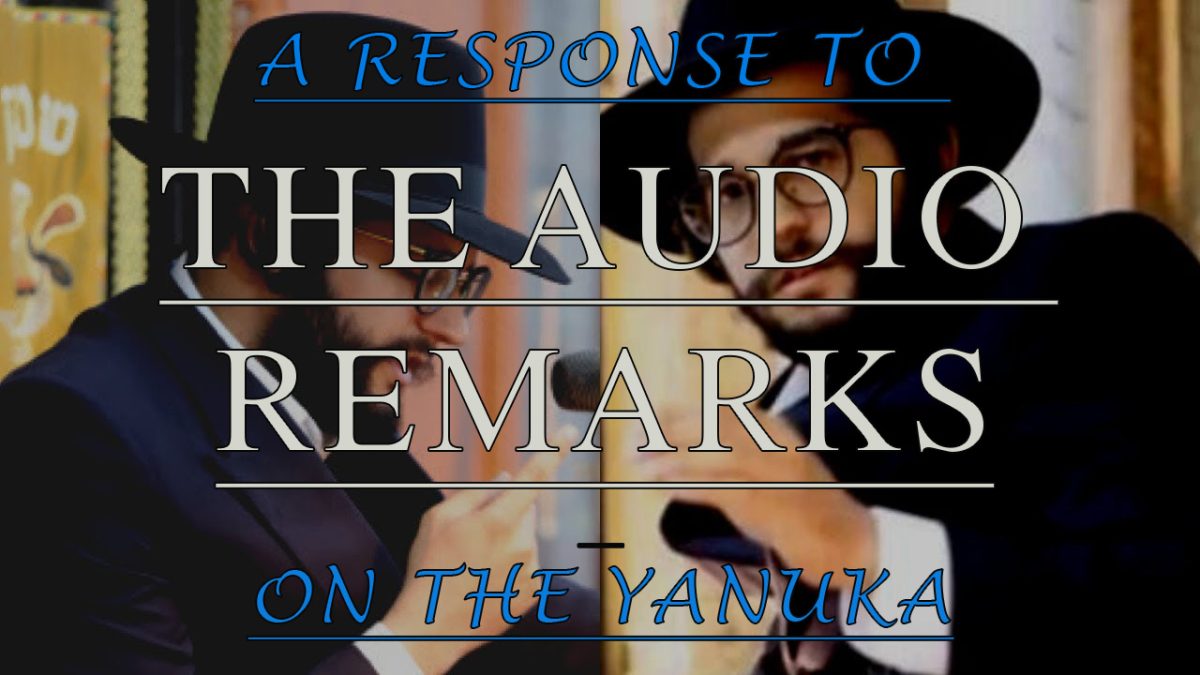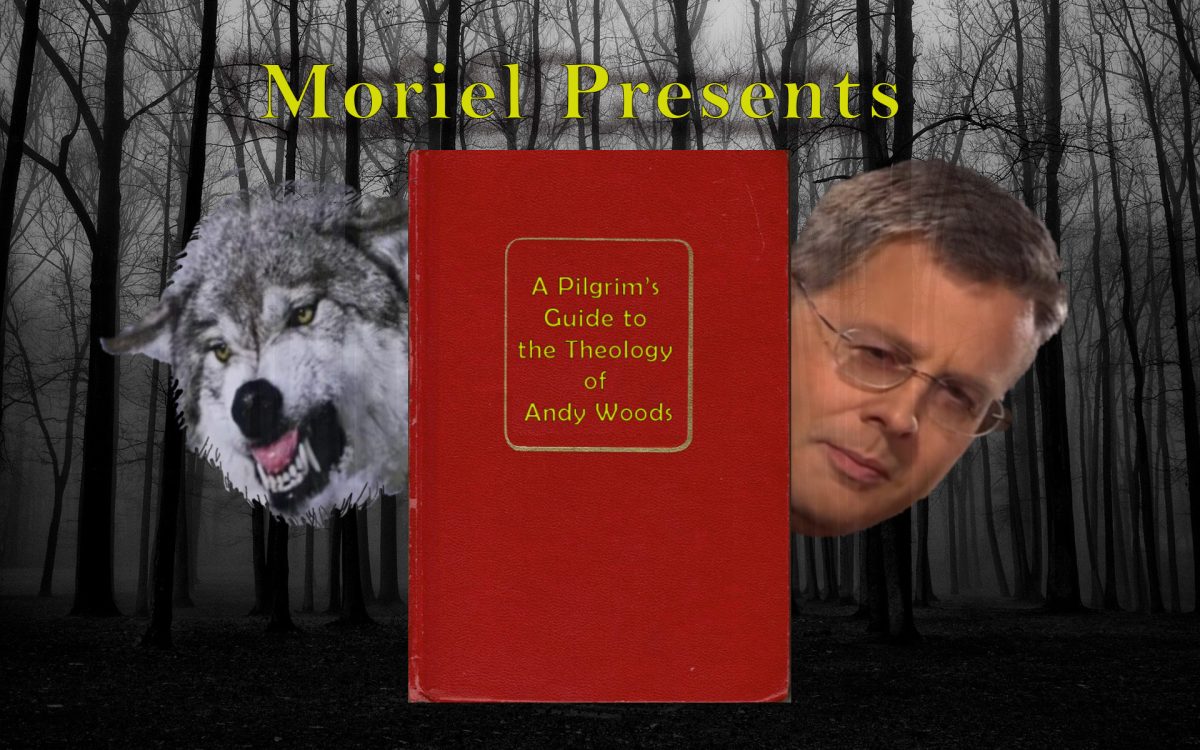Hanukkah Part 1 of 2
Introduction
“Hanukkah” comes from the Hebrew term “hanukkat” meaning “dedication” or “rededication”.
There are four aspects of Hanukkah: The first is the “traditional” one, what most people are familiar with. However, the most important are the “historical”, the “messianic”, and the “eschatological” meanings.
-
The “historical” aspect of Hanukkah concerns what happened in the time of the Maccabees, about 160 years before Jesus.
-
The “messianic” implication of Hanukkah is revealed in the tenth chapter of the Gospel of John when Jesus celebrated the Feast.
-
The “eschatological” view observes how these things will be recapitulated or replayed in the Last Days, heralding the return of Christ.
So our main focus is on the historical €“ “what happened”; the messianic €“ “how it was fulfilled in Jesus”; and the eschatological €“ “what it will mean for His return”.
The Traditional Aspect
Many people will make this kind of argument: “Well, Christmas came from the Roman feast of Saturnalia, the 25th of December; it was a pagan holiday.” Hanukkah was on the 25th of Kislev, the Hebrew month approximating the same time. Virtually all the Hebrew holidays had preexisting Pagan parallels, only the Pagans were giving their thanks following an agricultural cycle, and the Pagans were giving thanks and praise to some other god €“ for the rain, the sun, the harvest. So the Hebrew holidays would be a polemic against the Pagan”s. God (Yahweh) wanted the Hebrews to thank the true God for the rain, the harvest, and so forth. But when you find people making arguments, “Well, this was a Pagan day and that was a pagan day”, theologically and historically their arguments are very precarious.
The Apostle Paul says to let no one be your judge in regard to a festival or new moon or a Sabbath (Col 2:16-17). A parallel passage is in Romans 14:4, “Who are you to judge the servant of another? One man esteems one day, one another, let each be convinced in his own mind.” The important thing is that these things be done unto the Lord or else not be done at all.
My main problem with the Christmas celebration is that it is not done unto the Lord. I would rather see it not done at all than done the way it is. We have no idea when Jesus was born. An educated guess might be during the Feast of Tabernacles, but nobody really knows. God didn’t tell us, didn’t see fit to tell us, and obviously it wasn”t that important. He just was.
However, Hanukkah is something different. There is both an historical and a biblical €“ that is, a New Testament €“ precedent, for the Feast of Hanukkah. However, most of what we associate with Hanukkah now in Jewish culture €“ in “Yiddish kiten” €“ and most of what many Christians who know about it (if they do know about it) comes from something that”s traditional.
Most of the traditions associated with Hanukkah originated not in the ancient world, but in the Middle Ages; even the words of the songs associated with the Feast. The most famous song, “Ma”oz tzur y”shuati” derives from the Hebrew of the Middle Ages, not biblical Hebrew or modern Hebrew.
Hanukkah tradition says that the oil burned for eight days. There was enough oil in the lamp in the menorah in the temple for only one day, but it burned for eight. Again, there is no historical record of that in the book of 1 Macabees or 2 Macabees, and certainly nothing in Scripture; it was developed later. That is not to say it is not true. It may have happened, but it is never recorded in history. It was not mentioned by Josephus in Antiquities in a big way. People wonder how Josephus knew about it, but in his Antiquities much of what is focused on today was not his emphasis.
Hanukkah is the Jewish Feast of Light and the Jewish Feast of Miracles. The miracle was seen not in that the lamp burned eight days, but in that God gave them this incredible victory over this all-powerful enemy. And the light, of course, was when they rededicated the temple and they were able to light the menorah in the temple.
We know from Psalm 199:105:
Thy Word is a lamp unto my feet
And a light unto my path
So the menorah burning in the temple represented the Word of God to the Hebrews. But the windows of the temple were unique.
Normally, windows were built wide on the outside and then going narrow into the inside in order to focus light inside the building. But the shape of the temple where the menorah stood would be wide on the outside and then, to capture as much light as possible from the menorah, focused narrowly so it would shine out over what we call the “Millo” and go from the temple mount onto the City of David below. Hence the idea built into the architecture of the temple was that the light of Yahweh €“ the light of His Word €“ would come from the temple. The architecture of the temple illustrated that the Law would go forth from Zion and it would shine out. And so when the temple was rededicated this was the idea, that now we could re-illuminate the menorah.
Today you have things like traditional Hanukkah food. People eat jelly donuts called “sufganiot“. I don”t think they did that in ancient times. They ate “latkas“, potato pancakes, special kinds of knishes, if you like Jewish food.
And then, of course, there”s the “dreidel“: a Yiddish word based on the Hebrew word ” tsvivon“, “to spin” and there”s an acronym on it, “Nes, Gadol, Hya, Po” {A Great Miracle happened here.) They would spin the dreidel and children play the game with the dreidel, the top. What is popularly associated with Hanukkah has little to do with what actually transpired historically, and has little theological significance outside that which the rabbis attributed to it later on.
So there is the historical Hanukkah and the traditional. Another way to look at this is to compare the nativity, as recorded in Luke and Matthew, with the tradition of the church. It”s not just an embellishment; a lot of it is just made up. Tradition says there were three wise men yet you don”t find that in the New Testament. These stories are just made up. So it is with Hanukkah.
The Historical Aspect
Daniel is the only book of the Bible containing all three original languages: Aramaic (or Chaldee), Hebrew, and Greek. It has Greek words for certain things like musical instruments and so forth that would have been brought there by Macedonian mercenaries most likely.
The portions of Daniel that focus on the prophetic purposes of God specifically for the Jews are in Hebrew. The portions of Daniel focused on the prophetic purposes of God for Israel, relative to the nations, are in the lingua franca of the time, which was Chaldee (Aramaic).
The Rise and Fall of Assyria
When you read the book of Daniel, remember that the Last Days are like Daniel”s days. The Jews were terrified of Assyria. They were the bad guys, the ones that took the ten northern tribes into captivity. These were the cruelest and most powerful Pagans. Nobody imagined that Assyria would one day implode. Once it did, there was a false sense of peace that lasted a very short time. They were confronting Babylon and its meteoric rise, which was far worse than Assyria. And it had ancient roots (certainly spiritually) going back to the Tower of Babel.
The Rise and Fall of Media-Persia
Babylon went down the tubes overnight. And as Daniel prophesied, Media-Persia rose in its place. The Persians aligned with the Medes all the way until the late 20th Century during the rule of the Shah of Iran. Going back to Isaiah”s prophecies, the Persians (the Iranians) always favored the Jews even though it was an Islamic country, all the way until the fall of the Shah in the 1970″s. He claimed to be a descendant of the Peacock Throne of Cyrus the Great (“Kowresh“), who was prophesied about twice by Isaiah. (Isa 44:28; 45:1) And all the way until that time the Iranians favored the Jews. Their culture and languages were not Arabic, nor was the culture. They were “Zoroastrian,” monotheists who traced their monotheism in part back to Zoroastor, but were influenced by the Jews.
The Magi were Media chaplains to the kings of Media-Persia. That was the origin of the Magi. And because of the monotheistic influences they had from Zoroastor and from the Jews in the captivity (who influenced Nebuchadnezzar), they journeyed to see Jesus. You always had this link with the Persians and the Jews that lasts until the Last Days.
The Socratic Greeks in the West had the most light about monotheism, but in the East it was the Zoroastrians who had the most light about monotheism The Socratic Greeks were in the West much later, but the Persians €“ Zoroastrian Persians €“ had the most light.
The Rise and Fall of Greece
But the Persian Empire did not last long due to the conqueror Alexander the Great. But then Alexander the Great did not last long. He reached the desert of Belushistan, conquered most of the known world, and then at the age of 36 he got sick and died. His empire fragmented and was divided between four of his generals. The two most important of these were Seleucus, who got Syria, Lebanon, Galilee, and central Israel €“ and Ptolemais, who got Egypt and southern Israel. They are the two most important of the four, historically, but also in the Bible.
The Seleucids were Syro-Phoenician Greeks, Greeks who lived in that area of Phoenicia €“ of Lebanon and around Alippo in Syria €“ down to the area of Tyre and Sidon. Luke the apostle was a Syro-Phoenician who converted to Judaism.
Antiochus Epiphanes is one of the most important types €“ or foreshadows €“ of the Antichrist in the Bible. He came from the line of Seleucids called the dynasty of Antiochus. There were Antiochus I, II, III, and IV. Antiochus IV is Antiochus Epiphanes. The Greek speaking Jews would ridicule him by changing it to “Epimanus“, meaning “the mad one.”
You had this historical situation with the kings of the north and the kings of the south. Assyria goes, then it”s Babylon. Babylon goes, then it”s Media-Persia. Persia goes, then it”s the Greeks. Then there”s a worldwide chaos among the known world, and out of the chaos Rome comes to power. And in the middle of all this, Jews are going back to their land. In the Last Days, the same thing happens.
Similarities to Today
Growing up in the Baby Boomer generation, the big threat was “the Soviets”. They were the ones persecuting Christians; they did not believe in God; they were dogmatically atheistic. Nobody of our generation who remembers the Cuban Missile Crisis and Vietnam would have thought the Soviet Union would have imploded and the Berlin Wall would have come down. It imploded €“ just like Assyria, bringing a false sense of peace to the world, until you turn around and you”re looking at a much more dangerous enemy, Islam.
When I was a little boy in New York during the Cuban Missile Crisis, I remember Nikita Kruschev came to New York and literally took off his shoe and pounded it on the podium in the U.N. saying, “We will bury you! We will bury you!” He actually did that. In a matter of months, Brezhnev, Suzlov, and the Politburo deposed him. You can”t have a mad man that likes to drink vodka with his finger on the button.
During the Watergate crisis, Nixon was stoned on tranquilizers and alcohol according to his associates Colson, Haig, and Kissinger. And he called a stage three nuclear alert on the Soviets during the Yom Kippur War, trying to capitalize on the war, to save his own neck politically. He was deposed within a matter of weeks. The American establishment turned against him. You can”t have a nut stoned on tranquilizers and alcohol with his finger on the button.
The Islamic world does not think that way. The Hindu world does not think that way. The Hindu believes he”s going to be reincarnated, and the Muslim thinks he”s going to be “Shahadi“. The only assurance of salvation in Islam is to die in a Jihad. Hence, just like the world was in a much more precarious state after Assyria collapsed, the same is true now. It is in a much more dangerous and precarious state now when Islamic countries are getting enough fissionable materials to make even a 50-megaton bomb.
So it is a very rapid series of world empires rising and falling very quickly and, in the middle of all this, the Jews come back to their land €“ just like what happened in the book of Daniel. To understand the Last Days, we have to understand what happened here.
Now notice something else when you see the kings of the North and the kings of the South. The final conflict could not be East-West; it had to be North-South. It had to be a North-South conflict just like in the days of Daniel. And that”s what you”re going to see. You”re going to see a North-South conflict, creating the same kind of chaos that existed in the days that saw the rise of the Roman Empire. That will happen again out of the chaos.
Pompeii as a Type of Antichrist
Notice that the figure earlier in the 11th chapter of Daniel also enters the ” Beautiful Land” in verse 16, and he also makes a false covenant. One of the problems you”re going to have in the Last Days is that there are many Antichrists. So every time somebody tries to sign a peace treaty in the Middle East, people are going to say, “That”s it!”
This ultimate Antichrist is going to be different. He will be in the character €“ insofar as this text is telling us €“ of two people. One is Antiochus IV €“ Epiphanes, and the other is General Pompeii. Whenever somebody other than the High Priest on the Day of Atonement (or than Lord Jesus Himself in the book of Hebrews) enters the Holy of Holies, it”s a type of the Antichrist. And the Roman General Pompeii did that. He represented the triumvirate of Rome, made a treaty with the Jews, and then the Jews were double-crossed and he entered the Holy of Holies. He is a major, major type of the Antichrist which people overlook.
Antiochus IV as a Type of Antichrist
The Hasmonean Period was between the time of Macabees and Pompey. The Hasmoneans were the descendants of the Macabees. It was a prosperous period where they thought the throne of David was going to be resurrected, and it was where the messianic expectation was really amplified. Much of the stage was set for the coming of Jesus in the Hasmonean Period. The Hasmoneans began right, but ended bad.
Antiochus IV had an agenda to use culture and religion to gain political control. The Antichrist will do the same thing. He will try to make something multi-cultural and multi-faith, and he will come in the character of Antiochus. Now remember, other people were doing similar stuff before Antiochus came. The important thing to remember is that up to verse 36 of Daniel 11, there was a partial historical fulfillment. Antiochus did everything up to verse 36. But, from verse 36 onward into chapter 12, nobody has ever done that yet. In other words, the Antichrist €“ the Beast €“ will replay what Antiochus did and then do the rest of it. He will do the kinds of things Antiochus did €“ up to verse 36, but then he”ll go beyond and do the rest of it.
Antiochus Hellenized the Jewish culture. He took the popular culture of the world €“ and put it on God’s people who compromised with it. They went along with it until it got to the point that they could no longer stop it.
The Use of Culture and Religion
Everything in the Greek world was the diametric opposite of the Hebrew world. There was the Greek way of thinking and the Hebrew way of thinking. The Hebrew way of thinking was one based on a concept of theopomorphic men and women, that we are made in the image and likeness of God. The Greek way of thinking was based on an anthropomorphic view of god: “We”re gods.” The Hebrews were monotheistic, the Greeks polytheistic. The Hebrews were made in God’s image, the Greeks, “We make god in our image. Their gods had human qualities: You could cheat them, you could con them, you could placate them. This was the underlying philosophy of the Greeks, completely diametrically opposed to what the Hebrews believed. There are no two things philosophically more mutually exclusive than Aristotelianism (Aristotle”s philosophy) and Judeo-Christianity.
In the Middle Ages Thomas Aquinas wrote something called the “Summa Theologica” and he Aristotelianized Christianity. Maimonides (Rambam) came along and Aristotelianized Judaism. There are no two things more incompatible than Aristotelian philosophy and a Judeo-Christian worldview.
There are three kinds of people in God’s economy: the Jews, the Gentiles, and the church made up of both Jew and Gentile. As far as the nations are concerned, they are deceived. That leaves the two kinds of people the Bible calls “God’s chosen”: the Jews and the church. The Jews, except for a faithful remnant who accept the Messiah, are deceived. That leaves us, the church, made up of Jew and Gentile.
The End Result of Compromise
What you see happening in the history of the church reflects what happened in this period that Daniel prophesies, the Intertestamental Period.
In the Greek world, homosexuality and bisexuality were culturally endemic. They were accepted as sexually normative behavior. Sexual use of children was somewhat socially acceptable. But certainly perverted sex €“ homosexuality and lesbianism (from the Island Lesbos) €“ these things were culturally normative.
In Greek entertainment there was this mixture of Pagan religious philosophy and entertainment. The problem was not the sports, the problem was in the Greek view of the Olympics: It was lewd. I do not mean “naked” in the biological sense that the athletes competed in the nude, but “naked” in the sense of sexual exhibitionism. Originating in the Greek world, something the Romans later adopted €“ the Romans called them “gladiators” €“ violence was used as popular entertainment.
These were the cultural elements of the Greek world that Antiochus wanted everybody to accept. He wanted to Hellenize all culture. When the Hebrews went along with it, they brought trouble upon themselves. “Well, we”ll go along with this, we”ll go along with that, we”ll go along with the other thing”, until surreptitiously laws were passed that outlawed their beliefs and they could no longer practice them. Ultimately, circumcision was outlawed and “Kasrut” (dietary law) was outlawed, then the reading of Torah was outlawed.
The Haftorah developed at this period because the reading of Torah was outlawed. So they began reading the Prophets (Haftorah), and they tried to find something from the Prophets which in theme corresponded to what the Lection would have been in the Torah for that week. That”s how you got the Haftorah.
Things were progressively banned. And the problem was God’s people went along with it step by step until it couldn”t be stopped, including the banning of the Levitical theocracy. The priests of the Levitical theocracy had been the Zadokites, the good priests according to Ezekiel; sons of Zadok. But then the Zadokim became the Sadducees; they became bad guys. But they began right. The Hasmonean Period began with the Maccabees and then it got corrupted after that. The Jews were compromising, then things got outlawed and could not be stopped.
The main problem was not the Pagans. The main problems were the Jews who collaborated and the Jews who stood by and kept their mouths shut.
There was, of course, in Britain a Prime Minister who said, “In order for wicked men to triumph, good men must merely remain silent.” Well, he was right. If we go back to the 1930″s, the equivalent of nuclear disarmament, the Campaign for Nuclear Disarmament (CND) , were the Chamberlainists. Churchill and a small group of mainly Torrey Members of Parliament (MP”s) warned, “Look, you can”t let Hitler violate the Versailles Treaty like this; we”re going to have to fight him sooner or later, better sooner than later.” And they were seen as war-mongers. And then over 10 million people signed petitions against war with Hitler, and Sudaten was given up for appeasement. But somebody like that cannot be stopped with appeasement. Just like when you had the CND, it was the same thing. “For wicked men to triumph, good men must merely remain silent.” But if they remain silent, how “good” can they be?
The Maccabees
The apocryphal books of 1 and 2 Maccabees are not included in the biblical Canon. However, they are reliable history books, even if they fall short in the area of divine inspiration. They accurately tell the story of the Jewish people in the Intertestamental period between the Old and the New Testaments. (I recommend you read 1 & 2 Maccabees for a better understanding of my comments.)
The Maccabees were a priestly family that lived in a village called “Modein” outside of Jerusalem. One of them was named Menelaus, a Hebrew who collaborated with the enemy. The Maccabees assassinated Menelaus and one of Antiochus” officers. They took off to the hills of Judah, an area near Jerusalem known as the Shillah, between Jerusalem and modern Tel Aviv, or between the Sea and Jerusalem. It is interesting that the Antichrist is prophesied to pitch his tents there in the same area, the Shillah. Another parallel is that both the Antichrist and the Maccabees begin with a small group and get more powerful.
Take note that you had a father and he had five sons. You have Eleazar, Jonathan, Jehuda the Maccabee, and Mathias and two of the five sons were betrayed from within. Again, the Last Days are the same thing €“ brother will turn against brother, many will fall away and betray each other. (Mark 13:12)
The first person they killed was not a Seleucid, it was a Jewish collaborator. People in small bands began joining them in a partisan action €“ guerrilla warfare. And they waged war using guerrilla tactics from the mountains. They would come down, attack the Seleucids, go back, and it would drag on and on. There was much treachery and intrigue. But eventually they wore them out and the Seleucids were defeated.
The Defiling of the Temple
In the first chapter of 1 Maccabees it is reported that the temple gets defiled. The stones of the altar underwent something horrific: A swine was sacrificed on them by Antiochus. And he built a statue of Zeus, giving Zeus his own features. Now Zeus was a corruption of “Theos” in Greek. Almost the same spelling, Zeus was the corruption of “Theos” in Greek meaning “god.” But he gave it his features €“ a man trying to identify himself as the great god. It was Mt. Olympus as opposed to Mt. Zion.
The Maccabees liberated Jerusalem but they had a quandary: “What can we do with the stones of the temple? Well, we can”t throw them away because they”re “mei qodesh“, they”re sanctified, but we can no longer sacrifice on them because a pig was sacrificed on them.” So they disassembled the altar (and that”s called a “mizbeach“) into stones, and we”re told in the Mishnah that they were stockpiled outside in Solomon”s Portico. And they believed that at Hanukkah, at the time of dedication, that either the Messiah or possibly Elijah the prophet (Eliyahu ha-Navi) was going to come and tell them what to do with the stones. “When the Messiah comes, He will know what to do with them. We can”t throw them away.” So they built another altar.
Antiochus was empowered by spiritual seduction and by Hellenizing God’s people €“ that is, using the popular culture. Riding on the back of the popular culture was a compromised morality. So it got to the point that things would have been abhorrent to any observant Jew in God’s own house, and the reading of His Word was outlawed.
The New Testament calls the church “the temple” no fewer than seven times. There are different Greek words for temple: “naos“, “heikal ioudaios“, and “heiron.”
I do not deny that there are those afoot who want to rebuild a temple in Jerusalem. I”m not saying that won”t happen. I”m not saying an image won”t be set up in it. What I”ve always said is this: The physical reflects the spiritual. When Jesus died on the cross, the “velon” €“ the veil €“ was torn from the ceiling to the ground. An actual, literal, physical event happened in a literal, physical temple €“ a supernatural event happened. But that”s not what was most important; what was most important is what it meant. Sinful man was no longer separated from holy God; we now have access to the Father though the blood of the High Priest. If the temple is rebuilt €“ and I”m not saying that it won”t be €“ and an image is set up €“ I”m not saying that won”t happen €“ it will only be a reflection of Antichrist being worshiped in Christendom. And it will come about the way it”s coming about now €“ Hellenization: God’s people being swallowed up by popular culture. Just look at it.
Keeping the World Out of the Gospel
What happened with Greek culture? Homosexuality and bisexuality were culturally endemic and, in fact, they even had a religious trapping to it. In the temple of prostitutes the female prostitutes were called the “hieros gamos“. The “hieros delphos” was a religious clergy.
Already, in Sweden and in Canada, there are moves afoot to call the public reading of portions of the Bible that denounce sexual sin and homosexuality, such as Romans 1 or Leviticus, “hate literature”. You can read the Quran, of course, but the Bible becomes outlawed.
This is exactly what happened in the days of the Maccabees; violence was used for entertainment. Now the Bible talks a lot about violence, but it never glorifies it. It just portrays it for what it is. It says at best that it is a necessary evil, but it never glorifies it. The whole society is getting like that. How can the church be salt and light in a society when the church is going along with the culture?
“For wicked men to triumph, good men must merely remain silent.” Last April, during Lent, I was reading a copy of a Christian magazine, and they were asking various Christian leaders about their devotional reading for Lent. Nicky Gumble, the man who runs Alpha Courses, said that for Lent he was reading the works of Rowan Williams, the Druid who ordains homosexuals. This is the guy who everybody is looking at to re-evangelize Britain. Somebody who recommends books by a Druid that ordains homosexuals at Holy Trinity “Bedlam” at Brompton, and everybody thinks he is a good guy. You understand how sick this is, how eroded the standard has become? There is no stopping it. This is exactly what happened when the Maccabees came along.
The Maccabees said, “Enough is enough!” The first one they knocked off was Menelaus the collaborator. The foremost dangerous enemies of the Gospel of Jesus Christ in this country are Evangelicals who collaborate with the enemies of the cross of Christ.
This is exactly what happened in the days of the Maccabees. Those who resisted, who stood up and said this is not right, were in small groups conducting a guerrilla action. But, lo and behold, others began coming out of the woodwork and joining with them. And I”m seeing this happen all over the place. I”m seeing people who are meeting in homes because they can”t find a decent church where they live, meeting in the British legion hall or something like that.
Joined by Hypocrites
However, something else happened with the Macabees according to 2 Mac 11:33-35: Many joined with them, but in hypocrisy.
Because somebody is against what you are against does not automatically mean that they are for what you are for. People who point out what is wrong €“ ministries like Vanguard magazine, the Berean Call, Understand the Times, or even Moriel €“ any who will stand up and say this stuff is not biblical will have a problem. 90% of the people we attract are sincere; 10% are malcontents that will find fault in any church. They will just join with somebody like me as a sounding board so they can attack other things.
There are those who the only way to know what they”re for is based on what they”re against. You cannot build a church, a fellowship, or a ministry based on what you”re against. We know that stuff is off the wall, but what are we for? We know Alpha is not biblical, but what do we stand for? That”s the question.
Watch out for people that say they have discernment ministries and all they do is attack what”s wrong but they never point to what”s right. They are not into evangelism, they”re not into missions, they are not into Bible studies. Be careful of people like that. There are good discernment ministries and bad discernment ministries; there are good organizations and there are bad ones. Those who are trying to rebuild the body of Christ like Intercessors for Britain are alright. You could never base or build something on what you are against, only on what you are for.
Remember, the first and foremost defense against error is always a knowledge of the truth. However, there is a need for discernment ministry because people don”t know the truth any more. If people knew their Bibles, they would know Nicky Gumble was off. They would see through Benny Hinn or Creflo Dollar. If people knew the truth, they would discern error for themselves. But they don”t know the truth and so the defense of the faith is vital.
Those Who Have Insight
However, in the days of the Maccabees there were people just like there will be in the Last Days: Those who have insight will give understanding to the many. (Dan 11:33) People will attend a meeting where the truth is taught and defended then obtain a copy of the tape, take it home, and make a copy of it to give it to somebody in a flaky church. Those that have insight will give understanding to the many.
In other words, when you see the Ecumenical movement, when you see the ordination of homosexuals, when you see things like this, the abomination is already being set up in the temple. Keep one eye on Jerusalem, keep the other eye on the body of Christ.
Even on the Temple Mount is a quotation out from the Quran, “Allah does not beget matters he has begotten €“ God has no son”. There is already an abomination on the Temple Mount and it is already in the church.
Small Groups
Now, that was the background. That”s what happened then, and that”s what”s happening now. So we have the traditional and we have the historical, then we have the eschatological.
In the Last Days it”ll be the same thing, a small group of people will arise like the Maccabees. Those that have insight will give understanding to the others and God begins to build an army that will withstand this landslide. Many will join in hypocrisy, there will be treason within the ranks, but in the end they win. In the end, the Maccabees won. It was prophesied by Daniel.
Well, I can tell you this: A lot of bad things are going to happen. These two beasts are going to come, but I read the end of the book €“ in the end we win. What is going to happen is what did happen.
The Maccabees, Jesus, King David €“ all had the same strategy. Things got really bad under King Saul, things got really bad under the Seleucids, things got really bad under the Sanhedrin and the Romans (Herodians). Whenever things get really bad, God begins raising up something new based on small groups.
This becomes Hanukkah — the Hebrew feast of light and miracles, what we call in Hebrew, “Nesim v” niflaot“.







